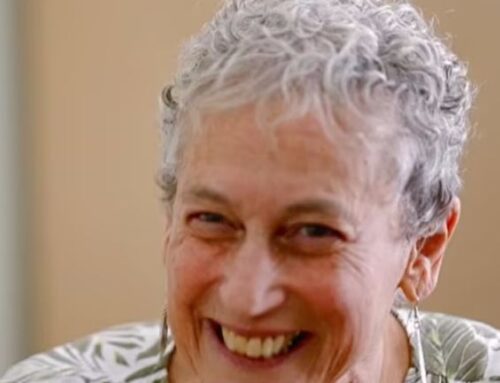What do Church leaders in Canada think about the legalization of physician-assisted death (PAD)? Not so long ago, the answer was clear. At Christmas in 1996, the Canadian Council of Churches (CCC), a group which includes every major Catholic, Orthodox, and Protestant denomination in the country, issued a Statement of Convergence of Euthanasia and Assisted Suicide that straightforwardly declared: “To change current law and practice to enable a physician, family member or any private citizen to take the life of another or assist in their suicide would undermine the ultimate respect for human life itself and create new victims in complex situations…. While pain and despair are real, the solution should not be found in the termination of life.”
As recently as June 5, 2014, the CCC reacted to Quebec’s “Medical Aid in Dying” bill with a commentary which recalled that in 1996, “member churches of the CCC expressed their conviction that life is entrusted to us by God, and that any move to legalize euthanasia and physician-assisted suicide would run contrary to that widely held religious vision.”
It was barely six months later that the Supreme Court of Canada decreed in its precedent-shattering ruling Carter v. Canada that the longstanding prohibition in the Criminal Code on “physician-assisted dying” is unconstitutional insofar as it “deprives a competent adult of such assistance where (1) the person affected clearly consents to the termination of life; and (2) the person has a grievous and irremediable medical condition (including an illness, disease, or disability) that causes enduring suffering that is intolerable to the individual in the circumstances of his or her condition.”
What, then, did the United Church of Canada, the Anglican Church of Canada, and the Presbyterian Church in Canada – all of them charter members of the Canadian Council of Churches – have to say about this outrageous judicial attack on the sanctity of human life? Alas, essentially, nothing.
The General Assembly of the Presbyterian Church addressed the issue in a resolution on June 8, 2015, which noted that Presbyterians had long rejected the legalization of euthanasia and assisted suicide on the ground that “Christian thought through the ages has always understood that life is entrusted to us by God.” However, the resolution added, “our world has continued to change along with the language we use for this issue,” so the General Assembly now needs “further prayerful consideration under the promised guidance and illumination of the Holy Spirit” to come up with a new position on the legitimacy or illegitimacy of physician-assisted death.
The leadership of Canadian Anglicans is now no less equivocal. In a submission to the Special Joint Committee of the Senate and the House of Commons on Physician-Assisted Dying on February 3, the Anglican Church of Canada stated that it had not yet developed a position on the legitimacy of physician-assisted dying so it could only offer advice to the committee on several issues and questions that “might be of concern to many Anglicans and other people of good will on both sides of the debate.”
Likewise, on February 19, 2016, the Right Rev. Jordan Cantwell, Moderator of The United Church of Canada, advised the committee: “It will be some time before we have an official position on physician-assisted dying.”
These trendy churches have all abandoned what was, until recently, the universal and constant teaching of the Christian church on the sanctity of human life. In relation to this, as on so many other vital issues, the leaders of these once thriving churches have undertaken to conform their thinking to the current pattern of the world rather than continue to uphold “what is that good and acceptable and perfect will of God” as revealed by Sacred Scripture, right reason, and the traditional teaching of the church.
Is it any wonder that these Protestant churches have plunged into a rapid, sustained, and seemingly terminal decline?
In contrast, last October, the comparatively robust Canadian Conference of Catholic Bishops and the Evangelical Fellowship of Canada published a joint Declaration Against Euthanasia and Assisted Suicide avowing: “We, the undersigned, each from the basis of our sacred teachings and enduring traditions, affirm the sanctity of all human life, and the equal and inviolable dignity of every human being.” Therefore, the declaration emphasized: “We insist that any action intended to end human life is morally and ethically wrong. Together, we are determined to work to alleviate human suffering in every form but never by intentionally eliminating those who suffer.”
While it was expected that the Joint Committee of Parliament on Physician-Assisted Dying would flout the pro-life viewpoint, few anticipated that it would serve up a report quite so bad as the one on Feb. 25 which recommended that physician-assisted suicide should be made immediately available to all adults suffering intolerably from “grievous and irremediable medical conditions” including depression and other psychiatric disorders. In addition, the committee recommended (a) that after three-years consideration, medical assistance in dying should be extended on the same terms even to children who are deemed sufficiently mature to consent to the assistance of a physician in committing suicide, (b) that “all publicly-funded health-care institutions in Canada provide medical assistance in dying” and (c) that all conscientious physicians who refuse to kill or assist in the suicide of a patient upon request must, “at a minimum,” effectively refer the patient to another physician who is willing to do the evil deed.
In response to these appalling recommendations, Douglas Farrow, professor of Christian Thought at McGill University, sent an open letter on Feb. 29 to the president of the Canadian Conference of Catholic Bishops in which he expressed the hope that the bishops “will inform Catholic officials that anyone who votes to create a euthanasia regime or to liberalize one – since this provides immediate material cooperation to those who commit suicide or euthanasia and causes serious scandal by gravely injuring good morals – should not present himself for communion and is subject to punishment by a just penalty; even, if need be, to excommunication.”
This is a defining moment for Christians in Canada: All church leaders — Catholic, Protestant, and Evangelical – who respect the Commandment “Thou shalt not kill” should make plain that today, as always, anyone who condones the deliberate killing of patients under the guise of medical aid in dying is unworthy of receiving the sacraments.





